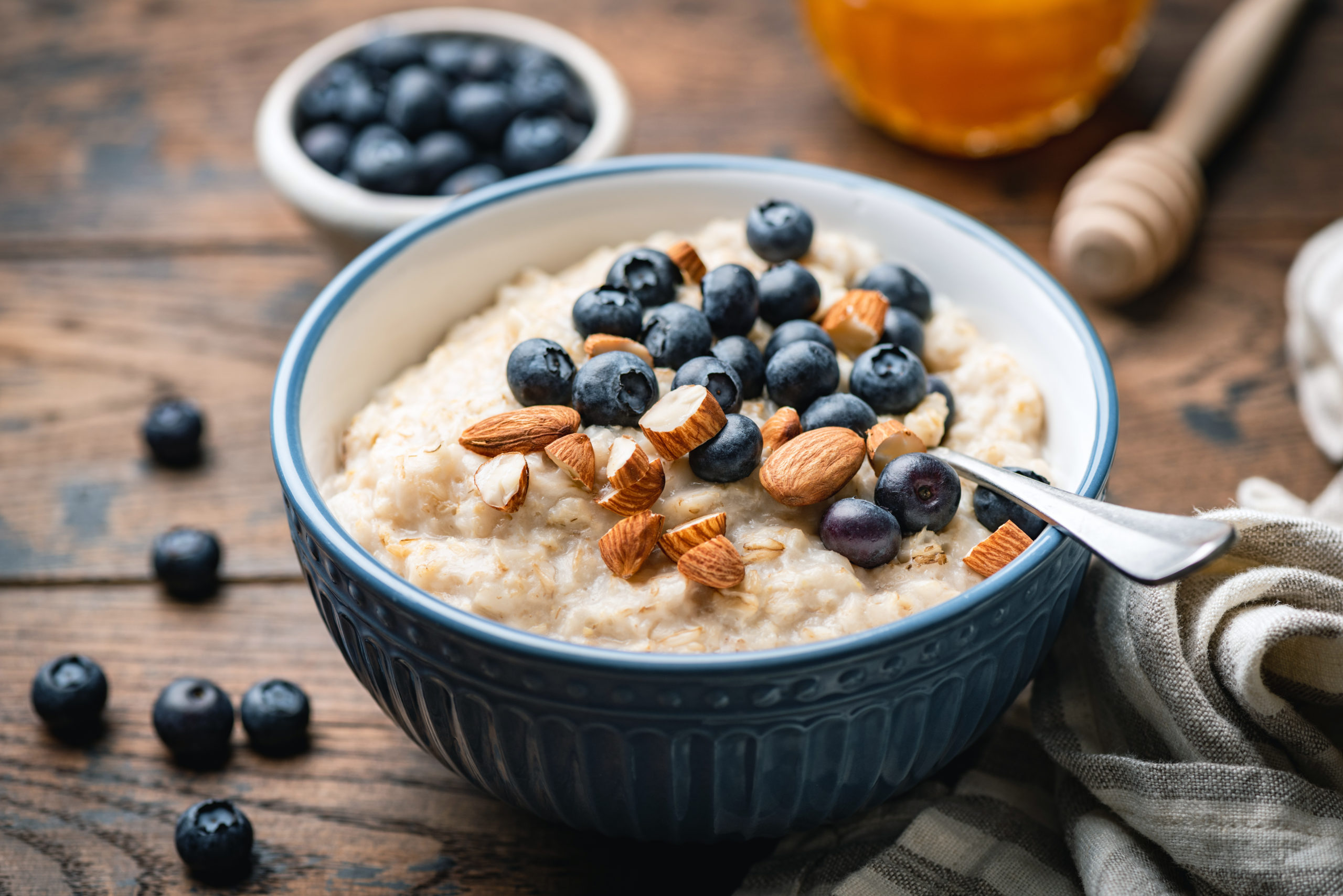Boost metabolism. Improve blood sugar control. Enhance weight loss. Decrease risk of Type 2 Diabetes. These are all common claims made about eating breakfast. Despite extensive research to answer the question ‘Is breakfast the most important meal of the day?’, the research remains inconclusive.
Weight Management & Breakfast
While research has demonstrated that those who eat breakfast are less likely to be overweight or more likely to maintain weight loss, the studies are cross-sectional in nature and do not prove cause and effect. Therefore, there could be other characteristics of early morning eaters that result in maintaining a healthy weight. For example, those who eat breakfast may be more likely to exercise, in which case exercise, rather than their morning nutrition, would be the reason for healthy weight maintenance.
In addition, researchers have hypothesized that skipping the first meal leads to overeating or choosing low quality foods later in the day, which can result in weight gain (or prevent weight loss); however, research findings are inconsistent.
Blood Sugar and Metabolism
Beyond weight management, you may hear that skipping breakfast negatively impacts blood sugar control or that eating breakfast can boost your metabolism. Again, research findings are weak. For example, one study demonstrated improved blood sugar control in those who ate breakfast compared to those who skipped; however, the study was conducted in 10 young males and did not demonstrate any differences in metabolism or body composition between the two groups.
Energy and Concentration
Glucose is the primary fuel source for your brain; however, your body has limited stored supplies. As such, after an overnight fast, your supply of glucose for your brain may be low, and you may start to feel sluggish throughout the morning if you don’t eat early. Some studies have demonstrated improved energy and ability to concentrate in those who eat breakfast compared to those who don’t. However, this varies across individuals, and some people claim to have more energy in the morning without this meal.
Vitamins and Minerals
If you eat breakfast, you may be more likely to meet the recommended daily intake of vitamins and minerals. Meeting recommendations can improve health; however, it is still possible to meet dietary recommendations without eating a morning meal.
Bottom Line on Breakfast
In conclusion, a healthy diet is not just about whether or not you eat breakfast. If you aren’t hungry in the morning and your energy levels aren’t negatively impacted by skipping your morning meal, then aim to make up for nutrients you missed with lunch, dinner and healthy snacks throughout the day.
However, if you aren’t skipping your morning meal because of lack of hunger, but because of time, energy or lack of ideas, check out our Overnight Oats recipe for something nutritious that you can prepare in advance!
Lastly, if you are eating a morning meal but are still experiencing lack of energy in the morning, make sure your choices are well-balanced by incorporating whole grains, protein and healthy fat. For more ideas or questions, don’t hesitate to reach out to Nicole at [email protected].
REFERENCES:
Betts JA, Richardson JD, Chowdhury EA, Holman GD, Tsintzas K, Thompson D. The causal role of breakfast in energy balance and health: a randomized controlled trial in lean adults. Am J Clin Nutr. 2014;100(2):539-547. doi:10.3945/ajcn.114.083402
Betts JA, Chowdhury EA, Gonzalez JT, Richardson JD, Tsintzas K, Thompson D. Is breakfast the most important meal of the day?. Proc Nutr Soc. 2016;75(4):464-474. doi:10.1017/S0029665116000318
Bi H, Gan Y, Yang C, Chen Y, Tong X, Lu Z. Breakfast skipping and the risk of type 2 diabetes: a meta-analysis of observational studies. Public Health Nutr. 2015;18(16):3013-3019. doi:10.1017/S1368980015000257
Brikou D, Zannidi D, Karfopoulou E, Anastasiou CA, Yannakoulia M. Breakfast consumption and weight-loss maintenance: results from the MedWeight study. Br J Nutr. 2016;115(12):2246-2251. doi:10.1017/S0007114516001550
Gibney MJ, Barr SI, Bellisle F, et al. Breakfast in Human Nutrition: The International Breakfast Research Initiative. Nutrients. 2018;10(5):559. Published 2018 May 1. doi:10.3390/nu10050559
Ofori-Asenso R, Owen AJ, Liew D. Skipping Breakfast and the Risk of Cardiovascular Disease and Death: A Systematic Review of Prospective Cohort Studies in Primary Prevention Settings. J Cardiovasc Dev Dis. 2019;6(3):30. Published 2019 Aug 22. doi:10.3390/jcdd6030030
Ogata H, Kayaba M, Tanaka Y, et al. Effect of skipping breakfast for 6 days on energy metabolism and diurnal rhythm of blood glucose in young healthy Japanese males. Am J Clin Nutr. 2019;110(1):41-52. doi:10.1093/ajcn/nqy346
O’Neil CE, Nicklas TA, Fulgoni VL 3rd. Nutrient intake, diet quality, and weight/adiposity parameters in breakfast patterns compared with no breakfast in adults: National Health and Nutrition Examination Survey 2001-2008. J Acad Nutr Diet. 2014;114(12 Suppl):S27-S43. doi:10.1016/j.jand.2014.08.021
Sievert Katherine, Hussain Sultana Monira, Page Matthew J, Wang Yuanyuan, Hughes Harrison J, Malek Mary et al. Effect of breakfast on weight and energy intake: systematic review and meta-analysis of randomised controlled trials BMJ 2019; 364 :l42
